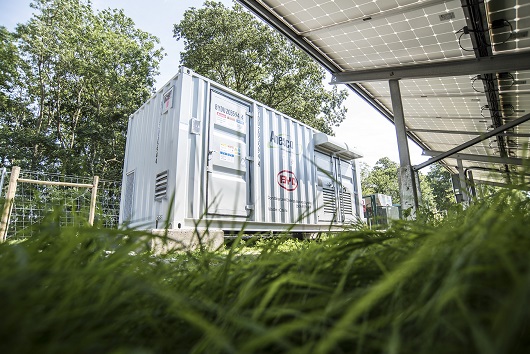Ofgem is hoping to eradicate the double-charging of storage assets through the addition of a formal definition of energy storage to the regulatory framework.
Previously, there has been no formal definition of storage meaning that it has fallen prey to double charging, whereby it has been charged as both a demand customer for its imports and as a generator for its exports.
The regulator plans would amend the electricity generation licence to classify storage as a subset of generation, meaning providers would no longer have to pay final consumption levies when the electricity imported is used for storage.
Through a consultation, Ofgem is proposing to define storage as ‘the conversion of electrical energy into a form of energy which can be stored, the storing of that energy, and the subsequent reconversion of that energy back into electrical energy’, a definition suggested by the Electricity Storage Network.
Following a 2017 consultation, Ofgem first proposed implementing a formal definition in its Smart Systems and Flexibility Plan from July that year. The regulator also proposed preventing providers from listing self-consumption as their primary function.
However, that has now been dropped in favour of requiring providers to publish certain information, such as capacity, whether it’s transmission or distribution connected and how they’re connected to the final consumer. The information will allow suppliers to correctly calculate the final consumption levies and for assets to be correctly identified as storage.
Storage providers that already hold a generation licence won’t need to reapply as the new licence conditions will automatically apply when they become implemented, 56 days after the publication of Ofgem’s decision.
Calls for a formal definition have been coming through for a number of years, with the ESN being the most prominent of those. However, in National Grid’s 2015 Future Energy Scenario study, a lack of formal definition was also criticised as creating legal uncertainties for ownership and operation for business models.
Madeleine Greenhalgh, policy lead for the ESN, said this is “a significant moment” for storage.
“We welcome Ofgem working to make this change in the generation licence and it is a step forward for the industry. However, the next step is to define storage in primary legislation and when BEIS find parliamentary time to do so, the key question for the industry will be whether to push for a separate asset class for storage,” she continued.
The consultation will close on 25 July 2019.





